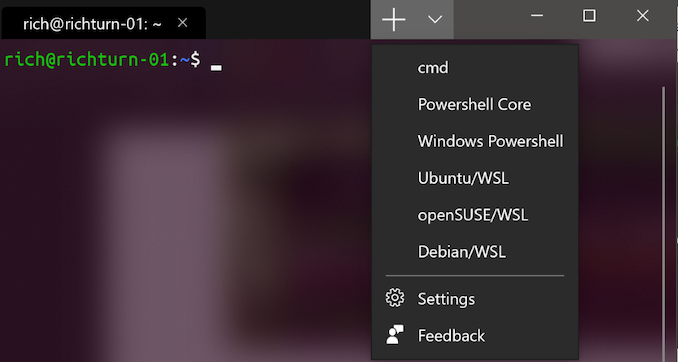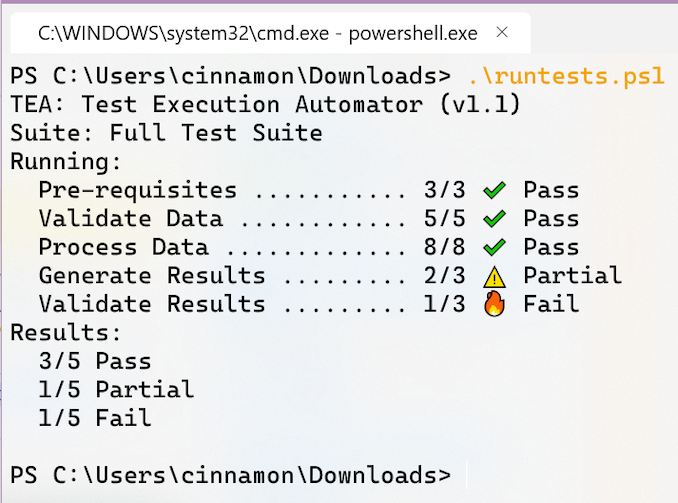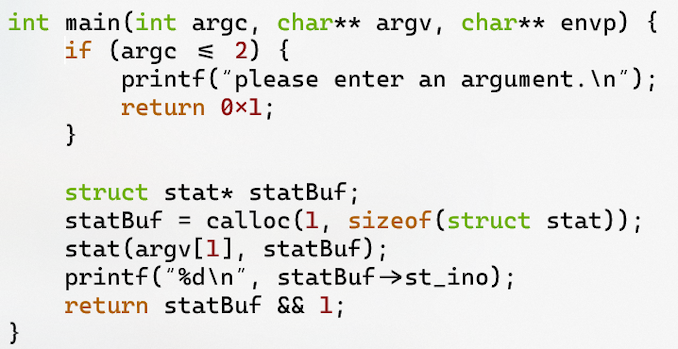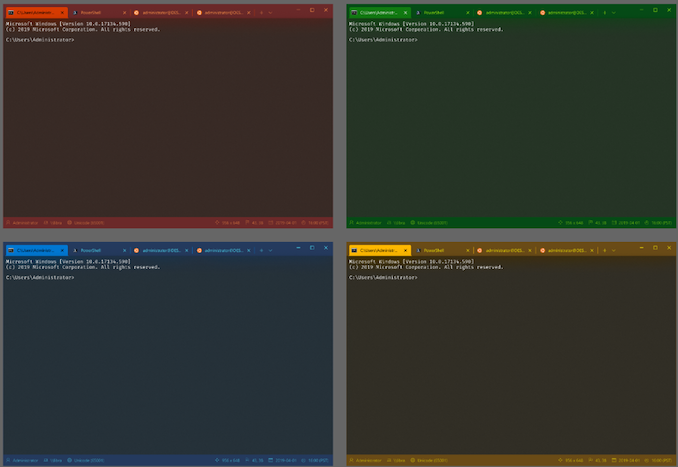Microsoft Build Day 1: Windows Subsystem For Linux Gets More Linux
by Brett Howse on May 7, 2019 11:00 AM ESTWindows Terminal
The other major announcement today for the command line on Windows is a new Windows Terminal app, which brings some much-needed attention to the basic command line shells in Windows. Windows Terminal will be delivered via the Windows Store and offers a bevy of features that should make any command line guru excited, even if you never use Linux, although it does tie in nicely to the WSL. Terminal will offer tab support, allowing you to have multiple different shells open at the same time, including Powershell, command line, SSH, and more. You can just launch a new shell and pick when you hit the plus sign for a new tab. It also supports tab ripping, so you can move one tab to a new session or different session if you’d like
Terminal also brings with it GPU accelerated DirectWrite based text rendering, which allows for additional characters to be supported as well as symbols, which means yes, emoji are now supported in the command line. Although this may sound like something no one needs, Microsoft showed a simple test suite which leverages emoji for pass, partial, and fail, and I have to admit that is a smart use for symbols, offering instant color-based recognition for the various results.
Microsoft has also developed a new font just for Terminal which is open-sourced. It’s designed as a monospaced font for programming, so it’ll be nice it develop over time.
Windows Terminal will also allow for theming, as well as extension support, and it’s an open-source project so you can download it yourself right now and compile it if you want to get in early. For those that aren’t interested in compiling it themselves, the team hopes to have it available by summer 2019 through the Windows Store for preview, and winter 2019 as a launch target for Terminal 1.0.
Terminal will allow users to create profiles for each shell if they’d like to, allowing them to customize the experience depending on what tool they are leveraging. You can change the theme, font, blur, transparency, and more, making each shell unique so you know exactly what shell you are in at any time.
As someone who uses the Windows command line quite a bit, Windows Terminal looks like a breath of fresh air, and catapults the command line years ahead of where it is now. Microsoft has updated it with some nice features over the last couple of releases, such as resizable windows, easier copy and paste, and more, but they were running into issues where additional changes may break existing scripts, so rather than continue down that path, they’ve started fresh. The existing console will still be available for backwards compatibility.
If you are a developer, a system admin, or just someone who wants to tinker with Linux or various shells, today’s announcements are very exciting. It’ll be fun to give these changes a spin when released.
Source: Microsoft Blog














53 Comments
View All Comments
Kevin G - Tuesday, May 7, 2019 - link
This seems weird, as if hell itself has frozen over.This goes alongside the HP Lovecraft story of things-that-should-not-be called MS SQL Server for Linux.
jenesuispasbavard - Tuesday, May 7, 2019 - link
This is great news. Updating packages on Ubuntu on Windows takes significantly longer than on native Ubuntu. And maybe I can finally mount a WebDAV folder in the WSL root instead of having to mount it in Windows and then accessing that from WSL.peevee - Thursday, May 9, 2019 - link
I am not sure it is such a great news. It's to be seen if the WSL2 compatible with Windows-based VPN software from, say, Cisco. It would be funny if I can get to corporate git from Win but not from WSL.And where the hell is Fedora/Centos/RH branch?
PeachNCream - Tuesday, May 7, 2019 - link
Interesting changes indeed, but it might make more sense for Microsoft to simply discontinue running an internally built OS and instead join the Linux community by evolving Windows into a Linux-based operating system in much the same way Apple and Google do. It would be a big change, but a lot of the emulation work for backwards compatibility is already there through WINE. MS is the only holdout these days in the PC/server space.HardwareDufus - Tuesday, May 7, 2019 - link
because everything must be assimilated?and think how much easier it will be for hackers and malware folks to only have to focus on one kernel. they will be so much more destructive.... sorry, I meant productive....
PeachNCream - Tuesday, May 7, 2019 - link
Windows is already the prime target for malware so the single target situation is status quo already.At any rate, it looks like Microsoft is self-assimilating already. The company contributes significant code to the open source community and I think you're seeing things like WSL as baby steps in the general direction of moving to something Linux-based. It might be a moonshot project MS is keeping under wraps, but I believe that development will be less expensive if Microsoft leaves their current OS model behind and I feel it is likely someone in Redmond isn't tallying up the costs and benefits of making the transition at some point in the future. After all, it's clear that Microsoft wants to draw revenue from the Store and through user data monetization rather than through software sales. If the operating system is not going to generate revenue (ala Windows 10 on-going, incremental release schedule), it should at least cost as little as possible to create.
nevcairiel - Tuesday, May 7, 2019 - link
There is way too much tech debt in desktop, 3D, multimedia, and whatnot on Linux, it would take years to get all of those components into a shape where it would even be "equal", nevermind that "Windows" would stagnate for that time.The entire WSL approach is not for "users", its for developers. They want developers to choose Windows, and they know that many tools work only, or at least better, on Linux. So they offer a combined effort. This has absolute no indications of wanting to abandon the NT kernel or anything of that sort. Thats never going to happen. Microsoft has always been rather religious about backwards compat for everything, and such a move would put that in serious jeopardy.
In before "this is the year of the Linux Desktop" crowd going ham on this comment.
PeachNCream - Tuesday, May 7, 2019 - link
It didn't take Google all that long to build an ecosystem around the Linux kernel....twice if you count Chrome OS. Microsoft is in an even better position to navigate that sort of change and, since the current kernel is closed source, I wonder how much of it is borrowed from Linux already. At the moment, there's no indication that we aren't already relying on some *nix-derived core under current Windows.alumine - Tuesday, May 7, 2019 - link
That's simply not how it works. First, Apple's kernel isn't a Linux kernel - it's XNU, derived originally from Mach (which is NOT Linux).Second - what's wrong with the NT kernel? So far it's still the most popular desktop platform (not talking embedded of course), and it has generated billions to MS. Also consider Azure and the Xbox (which runs an NT kernel).
Third - Chrome OS - can you *really* call that a success?
Fourth - why the hell would you compete in the already crowded Linux space, with an open source kernel anyone can modify and suddenly become your competitor whilst you have an offering NO ONE ELSE can offer AND it's successful to boot?
Fifth - security - what makes you think Linux is more secure? This is the same argument MacOS fanboys spout ("we don't get viruses"). Given the market share (although Android is now making it super large) it's just not worthwhile unless you target the very high end (banking institutions, government, etc) and even then as far as I'm aware you rarely target the OS kernel itself.
PeachNCream - Tuesday, May 7, 2019 - link
1 - It's BSD Unix - already discussed below, but you're splitting a lot of hair to support getting yourself upset.2 - Nothing at all. Where did I say there was something wrong with it? Please quote me exactly.
3 - Yes
4 - MS wants to monetize stuff other than the OS itself. Also, seems to work fine for Google.
5 - I didn't make a claim about Linux being more secure.